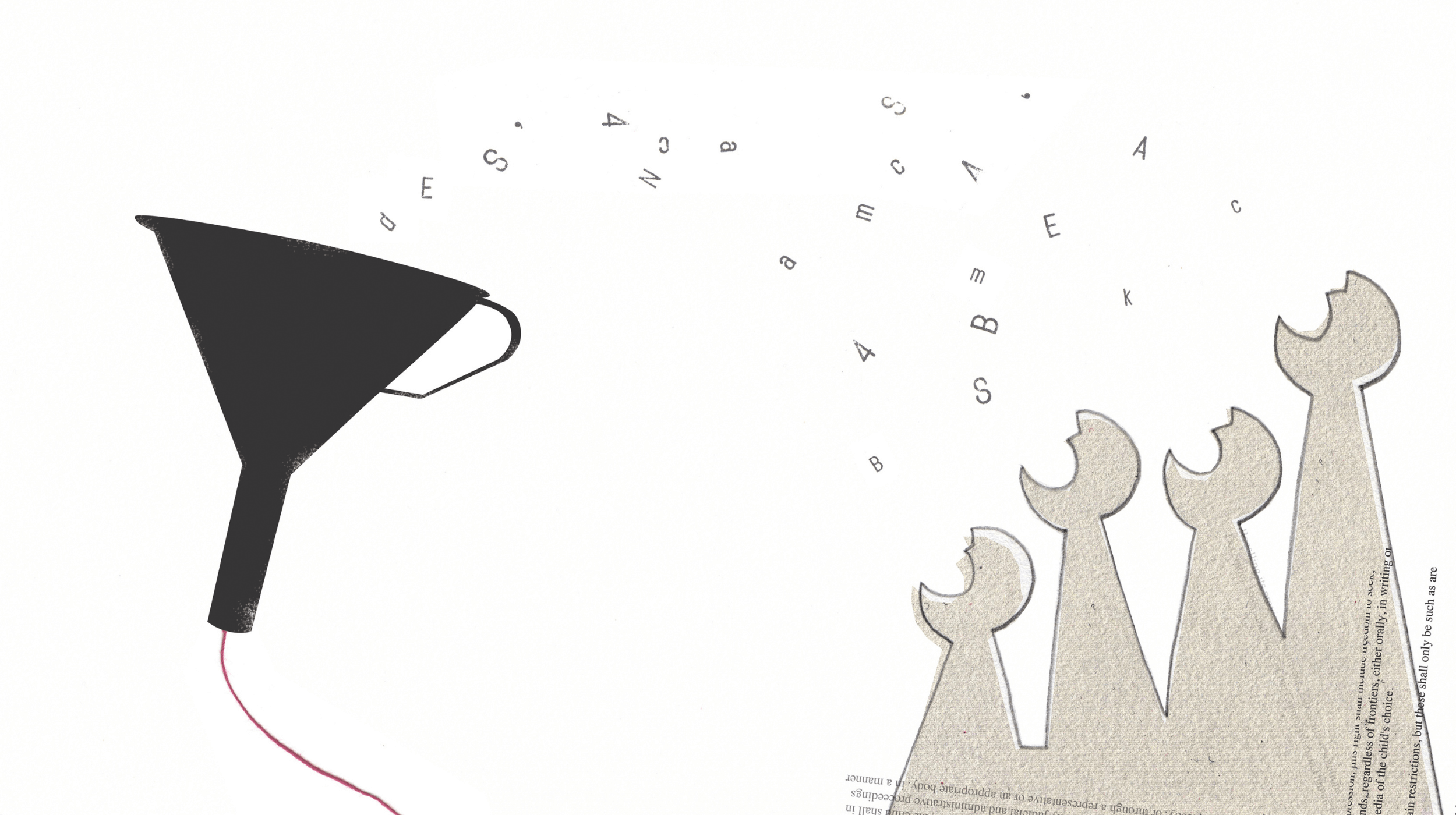CRIN has joined 570+ organisations defending CSOs against attacks by the far-right
European civil society organisations (CSOs) have been weathering misinformation campaigns spearheaded by MEPs from the European People’s Party (EPP) and far-right groups. By lying about CSOs misuse of funding and questioning their legitimacy, we risk not only shrinking European civic spaces but weakening democracy as a whole.
European civil society organisations (CSOs) are currently facing an unprecedented attack coming from certain Members of the European Parliament. The attack, spearheaded by some MEPs from the European People’s Party (EPP) and by the far-right groups, is fuelled by disinformation. The attack resorts to misleading arguments to artificially fabricate a scandal, and is carried and amplified by badly informed media articles. At a time when democratic values are being eroded across the EU and Member States, and civic actors acting for these values are increasingly under attack, this renewed offensive on funding for CSOs and on our legitimacy in the democratic process risks not only shrinking European civic spaces further but weakening democracy as a whole.
Disinformation from elected Members of Parliament
On 22 January 2025, some MEPs brought a targeted debate to the Plenary of the European Parliament (EP) on public funding of NGOs, focusing on environmental civil society organisations receiving operating grants under the LIFE programme. The debate raised questions about the legitimacy for CSOs to get such subsidies from the European Commission to carry out their missions. Many MEPs spoke in favour of the right of citizens organisations to engage in the democratic process. However, some MEPs mismatched arguments, suggesting that environmental organisations had been paid by the Commission to lobby the European Parliament on its behalf. This false narrative brings together opponents to the European Green Deal and adepts of conspiracy theory. MEPs wrongly spoke about fictional amounts of billions of Euros going to CSOs. False claims that CSOs were not duly using the Transparency Register were made – even though EU transparency measures resulted from campaigns by civil society, and CSOs were amongst the first adopters when they were put in place.
Why should CSOs receive public funding?
The focus of the current attacks is the EU’s LIFE programme, the main funding instrument for nature conservation and climate action.
It totals around €700 million per year. As part of this programme, the EU Commission allocates €15.6 million annually across a number of environmental NGOs in compliance with the provisions agreed by the European Parliament and the EU member States after a competitive and open procedure to support civil society’s invaluable role in providing evidence-based, scientifically supported and constructive recommendations to policymakers on issues that matter to people.
These funds are already dramatically insufficient to pursue the goals they are tasked to support: create a level-playing field, helping policy makers access information, fact-based evidence and best practices from the ground; and hear about citizens’ needs and expectations for their health and wellbeing, social inclusion and equality, their rights and justice, the promotion of the rule of law, the fight against corruption, and a healthy environment for current and future generations. Millions of citizens support these contributions to EU policies, through national, local and grassroots constituencies, volunteering and community engagement, provision of services and access to rights for the most vulnerable and excluded.
For a strong civil society, the development of a framework for civil dialogue based on Art.11 TEU is a priority for this five-years term for the EU institutions. Properly resourcing civil society organisations to engage in this dialogue by involving their constituencies across Europe is crucial. In the EU, as in any democracy, public funding is needed to support the work of civil society organisations whose mission and objectives are strengthening the values enshrined in the treaties and the Charter of Fundamental Rights.
It is a characteristic of authoritarian regimes that institutions consider no intermediary bodies are needed and that citizens are fully and only represented by the leader/s they elected. Indeed, the current debate illustrates the overall confrontation underway between European values and autocratic perspectives.
We call on all democratic forces to oppose false narratives and disinformation around the role of civil society organisations, to protect our unique role in European democracy and to support public funding for civil society. Civic participation is an essential pillar of our shared European values. We call on decision-makers to ensure a robust legal framework in which civil society and citizens organisations can thrive and play their role in interacting with policy-makers in order to have a more fully informed decision-making process. Democracy is about the right of citizens to be collectively heard for building an inclusive society and a shared European future and properly funded independent CSOs are a crucial tool for that.

